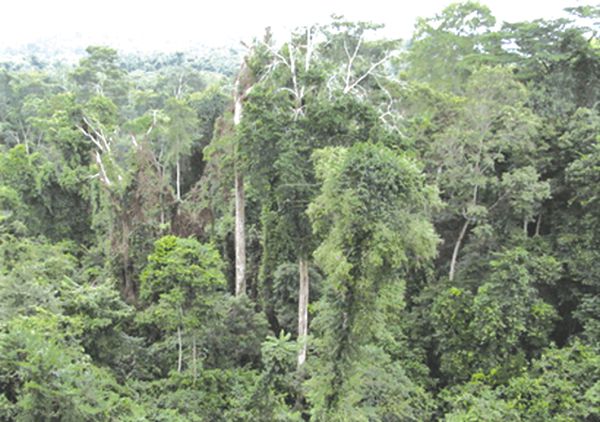
Natural resource governance in Ghana, an inclusive, impact-driven management agenda
At the 2018 University of Ghana New Year School and Conference, the Vice President disclosed the government of Ghana’s resolve to boost the country’s economic transformation by leveraging the country’s natural resources through value addition, transparent natural resource accounting and the development and implementation of natural resource-driven financing models for development.
While the three focus areas in the government’s 2018 outlook, if aggressively pursued, will be critical in promoting natural resource-driven economic growth, it must be emphasised that given the high levels of poverty and inequality, the focus for Ghana should not be simply growth, but sustainable and inclusive growth.
To achieve this, however, efficient, effective and sustainable natural resource management that considers comprehensively, the linkages between environmental sustainability, economic growth, institutional strengthening and social equity is essential.
It is of extreme importance to ensure that key policy areas in the natural resources management chain are appropriately addressed and relevant institutions empowered.
The following five key interdependent areas have been identified to make up the policy chain; exploration; exploitation; taxation; capacity building and deepening of the financial sector and investment.
Each of these five areas need strong policies and implementation frameworks to ensure the natural resource sector engenders sustainable and inclusive growth.
Robust institutions and strong political action have also been identified as pre-requisites to ensure the integrity and holistic functioning of the natural resource policy chain.
Public participation
To achieve resource-driven development, however, it is of extreme importance to ensure effective and efficient natural resource management by holistically addressing the entire resource management policy chain while taking pragmatic steps to engender citizen participation.
This should be underscored and backed by practical steps in ensuring an agenda for promotion of local content representation across all natural resource exploitation sectors, as well as workable mechanism for conflict resolution.
Within the natural resource management space, the political philosophy of pluralism has become a compelling foundation for the design and implementation of participatory processes in natural resource management.
It has been argued that greater efficiency and equity can be achieved if there is local democracy through accountable representation.
Public participation in resource management is also recognised as an important mechanism to ensure environmentally sustainable development.
Government ministries and agencies and related institutions, working in the field of resource use and management need citizen’s participation support in their activities.
Natural resource capital accounting
The challenge of continuous non-sustainable natural resource management in Ghana is not only attributable to the country’s rather poor institutional capacity or ineffective monitoring of stakeholder activities but also because we do not request for a comprehensive accounting system in our natural resource management process.
Accounting for our natural capital is a distinct way of acknowledging the value (in monetary terms) of both the environmental and economic activities and making choices based on those values.
Natural Capital Accounting (NCA), is a concept introduced by the World Bank which involves the conscious effort to calculate the total stocks and flows of natural resources and services in a given ecosystem.
The aim is to balance economic activities and environmental impacts taking into account all the costs and benefits, including pollution and extent of natural resource depletion in economic accounts and development planning.
Conventionally, natural resources/assets are not included in national accounts.
NCA provides the opportunity to capture natural assets in national accounts.
It helps to measure the ‘total’ value (and wealth) in our natural resources from both the perspectives of economic value (i.e. production inputs) and depleted value (i.e. value after exploitation).
Way forward
Our natural resources are our wealth base as a nation.
It is imperative to ensure all resources are sustainably managed, regardless of our pace of economic growth and development.
This is achievable through:
• Continuously improving the substantive quality of decisions in natural resource management (especially an agenda for promotion of local content representation across all natural resource exploitation sectors);
• Developing and implementing a fully functional and well thought-out natural capital accounting system for Ghana by the year 2030
• Incorporating public values into natural resource governance decisions (and vice versa, where applicable),
• Building trust among institutions, communities and the citizens through credibility of resource use and benefit management.
• Amicable resolution of conflict among competing interests in a participatory manner
The writer is a Chartered Environmentalist/
Environment and Climate Change Expert
Writers telephone number: 0263 597635
